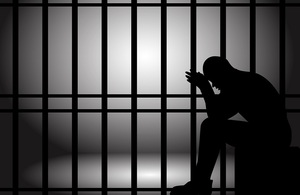The Prison Advice and Care trust (PACT) has found that more than 100,000 children in England and Wales have at least one parent in prison, which is an all-time high.
PACT research found that children of prisoners are ‘more likely to be involved in crime’ and ‘suffer mental health problems’ and are at risk of ‘homelessness and poverty later in life.’ With the prison population in England and Wales currently standing at 87,793 and the average male prisoner having 1.14 children, it is estimated that 100,084 children might be affected.
The prison population has risen by 80% in the last three decades and, in June of this year, reached its highest level since November 2017. PACT’s chief executive, Andy Keen-Downs, described this as ‘a grim milestone’ and claimed that the ‘rush to get tough on crime’ has meant ministers ‘have given little consideration to the long-lasting damage this policy will wreak on children and families.’ He further explained that ‘by imprisoning record numbers of parents we are storing up a whole raft of problems, the impact of which will be felt for decades to come.’
This comes amid the government’s plans for a prison expansion programme, which would see an investment of £4 billion. This was announced in 2022 in response to a projection that the prison population will rise by nearly 20,000 by the mid-2020s. However, planning delays have meant that the investment scheme is not scheduled for completion until 2030.
The justice secretary, Alex Chalk, has explained that ‘the UK government is in discussions with other European countries to rent spare prison cells’ due to over-crowding. Rait Kuuse, Estonia’s deputy secretary for the Ministry of Justice, told reporters there have been talks of possible ‘rental options,’ although these are only at a preliminary stage and would require approval by the Estonian legislature. Moving incarcerated parents further from their children increases the issues associated with parental imprisonment by creating more ‘adverse childhood experiences.’ Approximately 54% of prisoners have children under 18 when they enter custody and 45% of prisoners lose contact with their family whilst incarcerated.
In response to concerns, the Guardian reports that a £20 million investment has been made for a ‘cross-government data programme to improve support for people with complex needs, including those with parents in prison.’ A Ministry of Justice spokesperson stated, ‘Courts already take into account the impact custody can have on dependants and assured that ‘we appreciate the challenges faced by the families of offenders and are improving our understanding of the number of children affected by parental imprisonment.’






